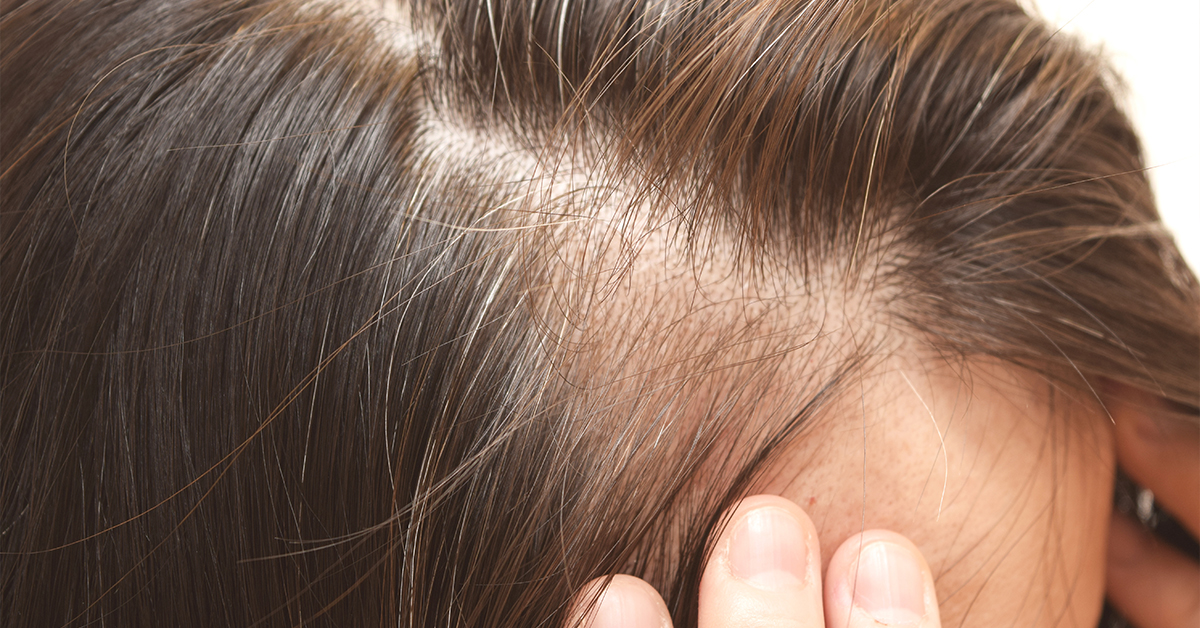What happens in your body and in your mind has a powerful impact on the health of your hair. This is especially true in a common type of hair loss called telogen effluvium.
Telogen effluvium occurs when a physical or emotional stressor disrupts the hair’s growth cycle, forcing too many follicles into their non-productive resting phase. This results in hair loss in excess of the 50-100 strands an average person sheds each day.
What Does Telogen Effluvium Look Like?
Telogen effluvium appears as diffuse hair shedding across the entire scalp, particularly on the top of the head. Your hair may look less dense overall, and you may notice a widening of your part.
While your hair loss may not be obvious to others, you might find a larger than normal number of hairs in your brush or comb, on your pillowcase, or in your tub or shower. This can be especially noticeable if you have long, dark, or curly hair.
What Causes Telogen Effluvium?
Some common telogen effluvium causes include psychological stress, weight loss, physical injury, illness (especially with a high fever), childbirth, surgery, dietary or hormonal changes, nutrient deficiencies, and certain medications. In up to a third of telogen effluvium cases, no cause can be determined. This is due in part to the delayed nature of this type of hair loss. Hairs typically shed two to four months after entering their telogen (resting) phase. So, excess telogen hair loss may happen several months after the triggering event occurred.
How Long Does Telogen Effluvium Last?
Fortunately, telogen effluvium typically resolves in six months or less. Afterwards, most hair strands begin growing again. In some cases – particularly in the case of prolonged stress or illness – telogen effluvium hair loss can last for years.
Does Biotin Help with Telogen Effluvium?
While there is no magic-bullet food or supplement to immediately reverse telogen effluvium, there are a number of nutrients that may lessen its impact and aid in healthier regrowth. The optimal telogen effluvium diet will include healthy proteins; amino acids like lysine, L-cystine, and L-methionine; B vitamins, particularly B7 (biotin), and minerals like iron, zinc, and selenium.
Do Telogen Effluvium Hairs Grow Back?
Hair lost to telogen effluvium usually grows back over time… especially after the triggering stressor is removed. In the meantime, we offer our clients suffering from telogen effluvium treatments like platelet rich plasma therapy to preserve existing hair and to accelerate regrowth. If sufficient regrowth cannot be achieved, we can fill in sparse areas with scalp micropigmentation or replace hair with ARTAS® or NeoGraft® transplantation procedures.
Reef Hair Helps You Manage Telogen Effluvium
Reef Hair offers a wide variety of hair preservation and replacement options to manage telogen effluvium and other types of hair loss. Set up a consultation today to learn more about how you can get the thicker, fuller head of hair you desire. We look forward to guiding you through your hair replacement journey!


